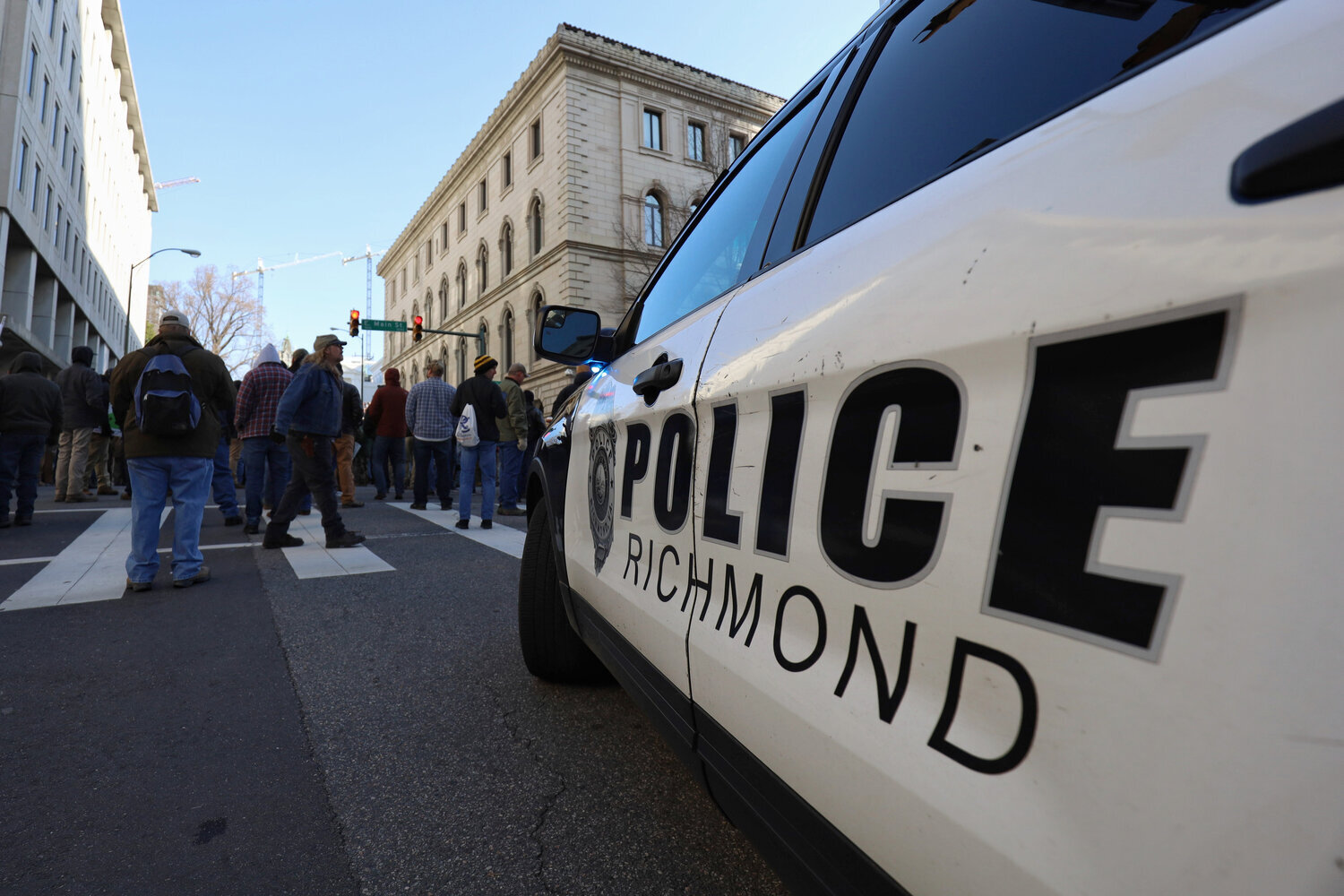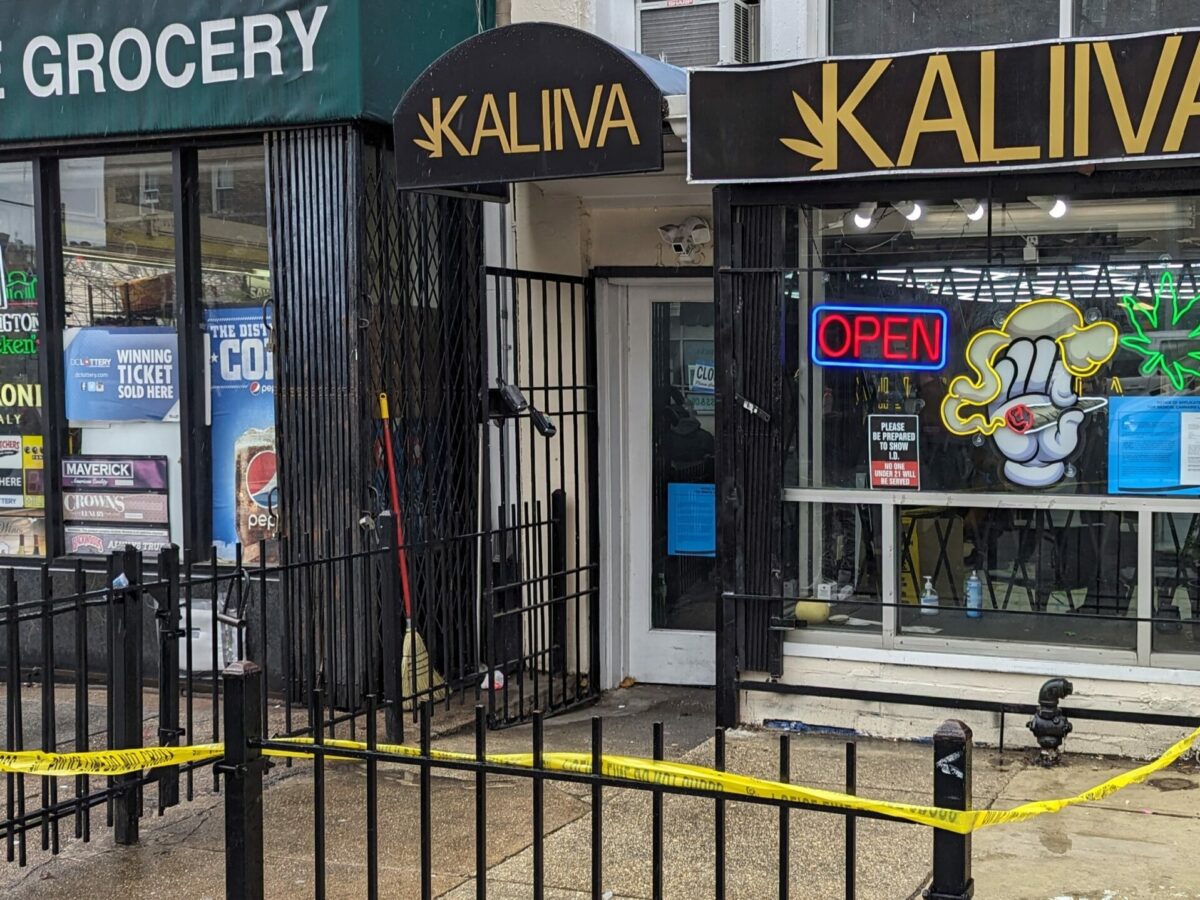While a bill to decriminalize cannabis in the state of Virginia moved through the House and Senate earlier this year (it was ultimately approved by Governor Ralph Northam earlier this month), the United States Court of Appeals for the Fourth Circuit in Virginia was making its decision regarding a 2016 arrest that began with a burning joint and lead to a significant drug and gun seizure. The Court of Appeals ultimately ruled that police officers who found a “smoldering marijuana joint” in a man’s garbage are allowed to use that as probable cause to obtain a warrant and search the man’s home.
It is a significant ruling that The Outlaw Report wanted to highlight that many have missed because it was handed down on March 3 as COVID-19’s spread began to dominate the news cycle.
According to the opinion, on August 24, 2016, three officers with the Richmond Police Department, finally acting on an “anonymous tip” they received back in May of 2016 that claimed a man named Melvin Jones “was selling marijuana and crack cocaine” from his home, knocked on Jones’ door. This was part of what police call a “knock and talk,” itself a police tactic often debated among constitutional lawyers because it has been argued, it is a workaround for not having a warrant and a way to ostensibly introduce the possibility of searching someone’s home later on, or if they see something, anything suspicious, to search right then and there.
A 2009 paper by Craig M. Bradley titled, “’Knock and Talk’ and the Fourth Amendment” says the following: “Under ‘knock and talk,’ police go to people’s residences, with or without probable cause, and knock on the door to obtain plain views of the interior of the house, to question the residents, to seek consent to search, and/or to arrest without a warrant, often based on what they discover during the ‘knock and talk.’ When combined with such other exceptions to the warrant requirement as ‘plain view,’ consent, and search incident to arrest, ‘knock and talk’ is a powerful investigative technique.”
That is essentially what Richmond Police did. They knocked on Jones’ door because they received a tip and when Jones opened the door they said they could smell cannabis and began the first in a series of steps to search his house. Based on the smell, they put Jones in handcuffs and entered his home where one officer said he located a burning joint sitting in the trash. The police then asked Jones for permission to search his home in full. Jones said no.
So police left and obtained a search warrant based on the cannabis smell and joint and proceeded to search Jones’ home where, “in a safe in Jones’s bedroom closet, officers recovered a handgun, and elsewhere they recovered marijuana, crack cocaine, and items commonly used for packaging and weighing narcotics.” Jones was charged with possession of a firearm by a felon and possession of cocaine base with intent to distribute.
In response, Jones filed a motion arguing that the search of his home was a fourth amendment violation because the warrant was too broad. In short, Jones argued that the smell of cannabis gave officers the right to search the home for cannabis but not for example, the safe because there was no probable cause that the cannabis they smelled could be inside of the closed safe. The search of the home was also challenged because, “the officers’ observation of ‘a still-smoking marijuana cigarette’ during the sweep meant that they had already identified the source of the odor and therefore should not have been authorized to search the rest of the house for evidence of marijuana possession.”
In 2018, the court ruled against Jones’ argument and Jones entered a conditional guilty plea for the gun charge which gave him the right to appeal. The court agreed to drop the drug charges. Jones was sentenced to 54 months.
Jones then appealed, maintaining that the basis for the search that led to the gun was the joint and therefore, police searching a closed safe (which is where they found the gun) to locate where cannabis smell was coming from was a “mismatch between the justification for the warrant for simple possession of marijuana (a single smoldering joint), and the scope of the search to include every container in the house, top to bottom.” Jones also argued that an anonymous tip should not have been considered.
“Jones’s argument…applies a too-cramped understanding of the scope of a proper warrant” and that the The opinion said, “based on the officers’ detection of a strong odor of marijuana smoke coming from Jones’s house, the magistrate lawfully issued a warrant authorizing the search of Jones’s entire house, including safes and locked boxes, for evidence of the crime of marijuana possession.”
It goes on to note “common sense” would suggest that the joint was not the only cannabis in the home and that someone would not leave additional cannabis or evidence of cannabis use out in the open which would mean police officers would have to search the home to find it.
Argued on October 31, 2019 and decided on March 3, 2020, the opinion written by Judge Niemeyer (and joined by judges Agee and Kleeh) concluded: “In some circumstances, probable cause can exist only as to a specific and identifiable object, and the warrant in such instances must accordingly be limited to places where that object could be found. But it does not follow that probable cause to believe that some incriminating evidence will be present at a particular place can never give rise to probable cause to believe that there will be more of the same at that place or another logical place.”
The opinion goes on: “And here, when evidence showed that Jones had just been using a small amount of marijuana in one room of his house, it reasonably followed that more marijuana or other evidence of the crime of marijuana possession was fairly likely to be found elsewhere in the house.”
The ability to use cannabis smell as justification for a search has been an ongoing debate and something that drug warrior police officers have fought hard to maintain. In a 2018 interview with Neill Franklin of the Law Enforcement Action Partnership (LEAP), Franklin told me that, “marijuana is still the number one reason the police are using to sidestep the Fourth Amendment and get into people’s car, pocket or home.”
Franklin added that police officers are often unabashed about admitting that cannabis smell is used as a vehicle for more serious charges.
“Police have no problem saying, ‘We need this so we can search people. We need this so we can find evidence of other crimes committed,’” Franklin said. “It’s wrong.”
Photo by Seth Michael / Courtesy Shutterstock




